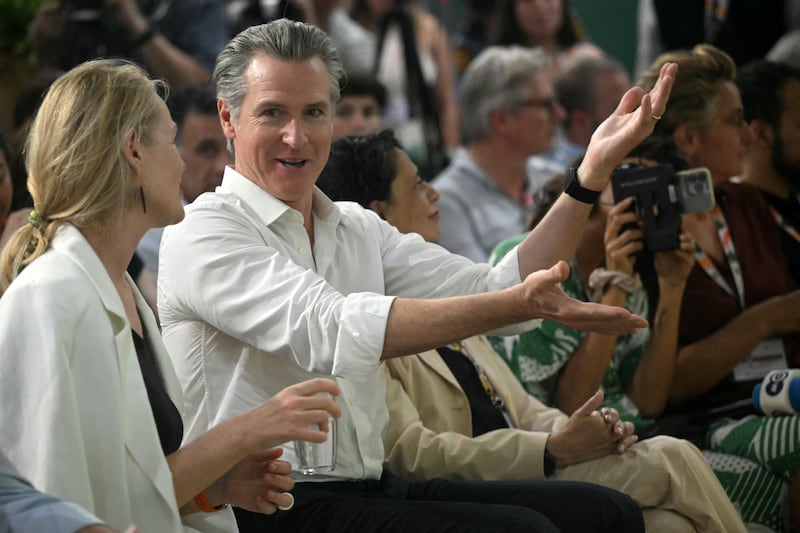Cop30 is proving to be the seesaw of climate summits, with participants repeatedly raised up on good news only to be plunged down by bad.
The good news is that countries are having apparently productive negotiations.
It is the miracle of the Círio, joked Gustavo Pinheiro of the climate think tank, E3G.
He was referring to the Círio de Nazaré, one of the world’s largest religious processions honouring Our Lady of Nazareth, which took place in the Brazilian host city Belém just weeks before the world’s largest climate talks came to town.
The bad news is that there are fears hostilities are being stored up for a special meeting of all heads of delegations scheduled for Wednesday to take stock of where they’re at.
Good news is that new analysis by the Centre for Research on Energy and Clean Air shows China, by far the world’s largest greenhouse gas emitter, looks to have stabilised its emissions, or even reduced them.
This would be a hugely significant turnaround which, if maintained and accelerated, would be a genuine win in the battle to slow the heating of the planet.
However, new analysis by the United Nations Environment Programme (UNEP) shows things are going to get worse before they get better.
UNEP says the demand for cooling through air conditioning and refrigeration is set to triple in the next 25 years because of more extreme heat events.
In poor countries, often hit by the most severe heatwaves, low-income households will have little choice but to buy cheap, energy-inefficient devices run on electricity produced by fossil fuel power systems and diesel generators.
Up go emissions, pollution and strains on power grids and down go the spirits.
“We cannot air-condition our way out of a heat crisis,” said UNEP head, Inger Andersen.
Apart from the obvious solution of preventing further global temperature rise, her organisation is promoting better building design to keep occupants cool, provision of low-cost, low-energy cooling equipment and the creation of urban green spaces.
Evandro Leitao, mayor of Fortaleza, a Brazilian city of high-rise apartment blocks, is to the fore of this “Beat the Heat” campaign, committed to squeezing microparks into the sweltering streets.
“This is about equity, health and livability,” he said, determined to make Fortaleza the coolest city in Brazil.
The bad news is that these kinds of solutions – known as adaptation measures because they help people adapt to the changing climate – require money and adaptation finance is expected to be the main sticking point of this summit.
Rich countries and corporations are slightly quicker to fund mitigation measures – such as renewable energy that cut greenhouse gas emissions – because there is a commercial return on them.
Adaptation doesn’t have the same appeal.
 The governor of California Gavin Newsom speaks with a woman during the Cop30 conference, in Belem on Tuesday. Photograph: Mauro Pimentel/AFP via Getty
The governor of California Gavin Newsom speaks with a woman during the Cop30 conference, in Belem on Tuesday. Photograph: Mauro Pimentel/AFP via Getty
The good news is that the world’s richest country, the United States, is attending Cop30 although not with top-level representation.
While president Donald Trump sent not one official delegate, the US Climate Alliance, a coalition of 24 governors continuing climate action at state level, is represented.
Democratic Governor of California, Gavin Newsom, is among them and he was due to address a press conference last night.
Newsom, frequent trader of insults with Trump, spent the previous few days attending related events in Sao Paulo where he attracted headlines for saying the US under Trump was “doubling down on stupid”.
The good news for climate is that the enormous state and economy of California still believes in climate action.
The bad news is that the president of the United States is likely to be angrier than ever when the governor gets back home.

